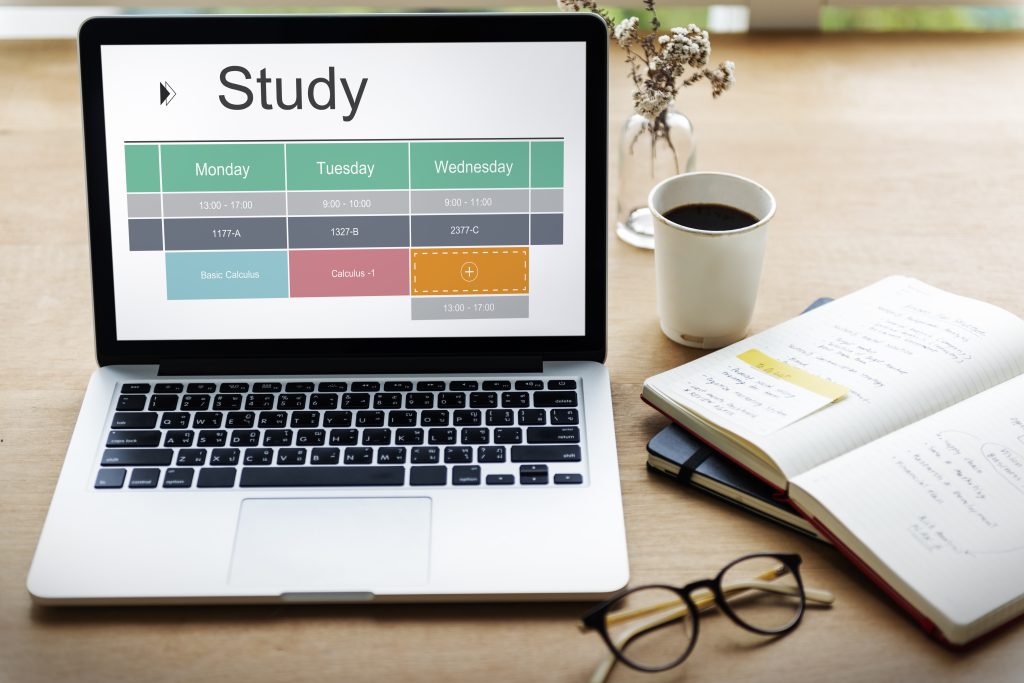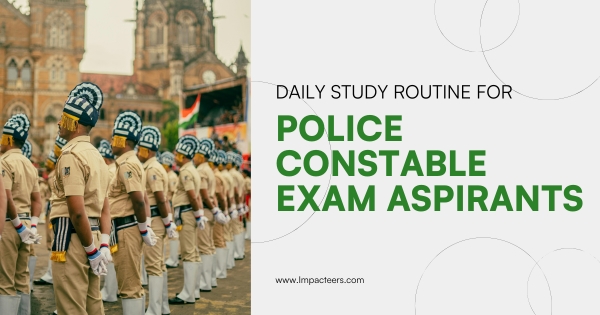A well-structured study plan for police constable aspirants is the key to staying consistent, covering the syllabus effectively, and boosting your chances of success. Preparation for police constable exam is not a small task. Every year, millions of aspirations apply, but only a fraction makes it through it. The differences between those who are successful and those who are not often come down to one thing: discipline.
A well -structured study plan for the Police Constable Examination may change your preparation. This ensures that you cover the PC course completely, balance your time between written and physical training, and stay consistent until the exam day.
In this guide, we will run through a daily routine for constable exam aspirants, covering the hours of study, practice strategies, modification techniques, and even lifestyle habits. By the way, we also show that when you feel stuck you can guide you mentorship programs such as Mentorship programs such as impacteers mentorship.
Visit Us >>> https://www.impacteers.com/home
1. Understanding the Police Constable Exam
Before building a study plan, you need to know what you’re preparing for.
Stages of the Exam
- Written Exam – Multiple-choice questions on reasoning, general knowledge, and language.
- Physical Efficiency Test (PET) – Running, long jump, push-ups, or other fitness activities.
- Medical Test – Ensuring overall health and fitness.
- Document Verification – Checking eligibility criteria.
- Written Exam – Multiple-choice questions on reasoning, general knowledge, and language.
- Physical Efficiency Test (PET) – Running, long jump, push-ups, or other fitness activities.
- Medical Test – Ensuring overall health and fitness.
- Document Verification – Checking eligibility criteria.
If you design a study plan without considering the police syllabus and physical requirements, you’ll always feel unprepared.
2. Breaking Down the Syllabus
The pc syllabus typically covers:
- General Knowledge & Current Affairs (history, geography, politics, events)
- Reasoning Ability (puzzles, logical reasoning, coding-decoding)
- Numerical Ability (basic arithmetic, percentages, averages, profit-loss)
- Language Skills (regional language + English grammar and comprehension)
A smart aspirant divides their exam routine into equal parts for all sections while giving extra time to weak subjects.
3. Setting the Foundation: How Many Hours to Study?
There’s no universal rule, but here’s a guideline:
- Full-Time Aspirants – 6 to 8 hours of daily study.
- Part-Time Aspirants (students or working candidates) – 3 to 4 hours daily with a more focused schedule.
Quality matters more than quantity. A focused 3-hour session with no distractions is worth more than 6 hours of half-hearted study.
4. Daily Study Routine (Sample Timetable)
Here’s a sample study plan for police constable aspirants:
Morning (6:00 AM – 9:00 AM)
- Jogging or running for physical fitness (30–40 mins).
- Breakfast + light reading of newspapers/current affairs.
- Study General Knowledge & Current Affairs (1–1.5 hrs).
Late Morning (10:00 AM – 12:30 PM)
- Reasoning practice (puzzles, logical questions).
- Short break (10–15 mins).
- Continue with reasoning or math topics.
Afternoon (2:00 PM – 4:00 PM)
- Focus on numerical ability: arithmetic, percentages, ratios.
- Solve 20–30 practice questions daily.
Evening (5:00 PM – 7:00 PM)
- Language preparation: grammar, vocabulary, comprehension.
- Practice writing short essays or answers for better speed.
Night (8:00 PM – 10:00 PM)
- Revise topics studied earlier in the day.
- Take a short mock test or solve previous year papers.
- Quick 15-minute meditation or relaxation before sleep.
5. Balancing Study and Physical Training
Unlike many government examinations, the constable examination also tests your physical strength and endurance. Ignoring this part is a big mistake.
Daily physical routine
Running: Create Stamina with 2-3 km run.
Shakti training: push-up, squats, planks.
Flexibility: Stretching exercises to prevent injuries.
Sports/Activities: Playing outdoor games keeps fitness enjoyable.
Tip: Consider your physical preparation as part of your routine, not something different.
6. Smart Study Strategies
- Chunking the Syllabus – Divide the pc syllabus into weekly goals.
- Pomodoro Technique – 25 minutes study + 5 minutes break.
- Mixing Subjects – Don’t study only math or only GK in one day; rotate subjects.
- Revision Cycles – Revise weekly and monthly.
7. Common Mistakes Aspirants Make
- Starting late and rushing before the exam.
- Ignoring current affairs.
- Overconfidence after scoring well in a few mocks.
- Neglecting physical preparation until after the written exam.
- Following too many study materials instead of sticking to a reliable source.
8. Role of Mock Tests
Mock tests help in three ways:
- Teach you time management.
- Highlight your weak areas.
- Build exam confidence.
Attempt at least 2 full-length mock tests per week and gradually increase as the exam date approaches.
9. Staying Consistent
Consistency is more important than intensity. Even if you study fewer hours, doing it daily makes your brain adapt and retain information.
Tip: Use a study journal to track daily progress. Note down what you completed, where you struggled, and what to revise again.
10. Why Mentorship Can Be a Game-Changer
Sometimes, self-study alone isn’t enough. Many aspirants waste precious months trying to figure out the right exam routine.
This is where Impacteers mentorship comes in. With structured guidance, personalized study plans, and experienced mentors, you can:
- Avoid common mistakes.
- Get clarity on the police syllabus.
- Stay motivated with accountability.
- Save time by following a proven roadmap.
A mentor doesn’t just guide your study plan—they also help you build the right mindset for success.
11. Last Month Before Exam
- Focus only on revision and mock tests.
- Don’t start new topics unless absolutely necessary.
- Fine-tune your physical training routine.
- Practice relaxation and stress-management techniques.
12. Exam Day Routine
- Wake up early and stay calm.
- Eat a light, healthy breakfast.
- Reach the exam center early.
- Start with easy questions in the paper to boost confidence.
- Manage time wisely—don’t get stuck on one question.

Conclusion: Build a Routine, Build Success
Cracking the police constable exam is not only about intelligence information – it is about discipline. A consistent daily study routine puts you forward, ensuring that you cover the course and create confidence for both written and physical tests.
And remember, you do not have to prepare alone. Programs like impacter mentorship can give you composition, motivation and expert advice that you need to succeed.
The responsibility of being badges, uniforms and police constables is worth every effort. Start from today, be disciplined, and your first attempt may be your final.
About Us >>>> https://blog.impacteers.com/
FAQs
1. How many hours should I study daily for the police constable exam?
Ideally, 6–8 hours for full-time aspirants and 3–4 hours for part-time aspirants is enough if you’re consistent.
2. Can I crack the constable exam without coaching?
Yes, with discipline and the right study plan for police constable, you can prepare at home. But mentorship programs like Impacteers mentorship provide extra guidance.
3. How important is physical training for the pc exam?
Equally important as the written test. Without meeting physical standards, you can’t qualify even if you ace the written exam.
4. What subjects should I focus on most?
Current affairs, reasoning, math, and language skills. But balance your time according to your strengths and weaknesses.
5. When should I start preparing for the police exam?
At least 6 months before the exam date for balanced preparation of both the syllabus and physical training.




Post Comment